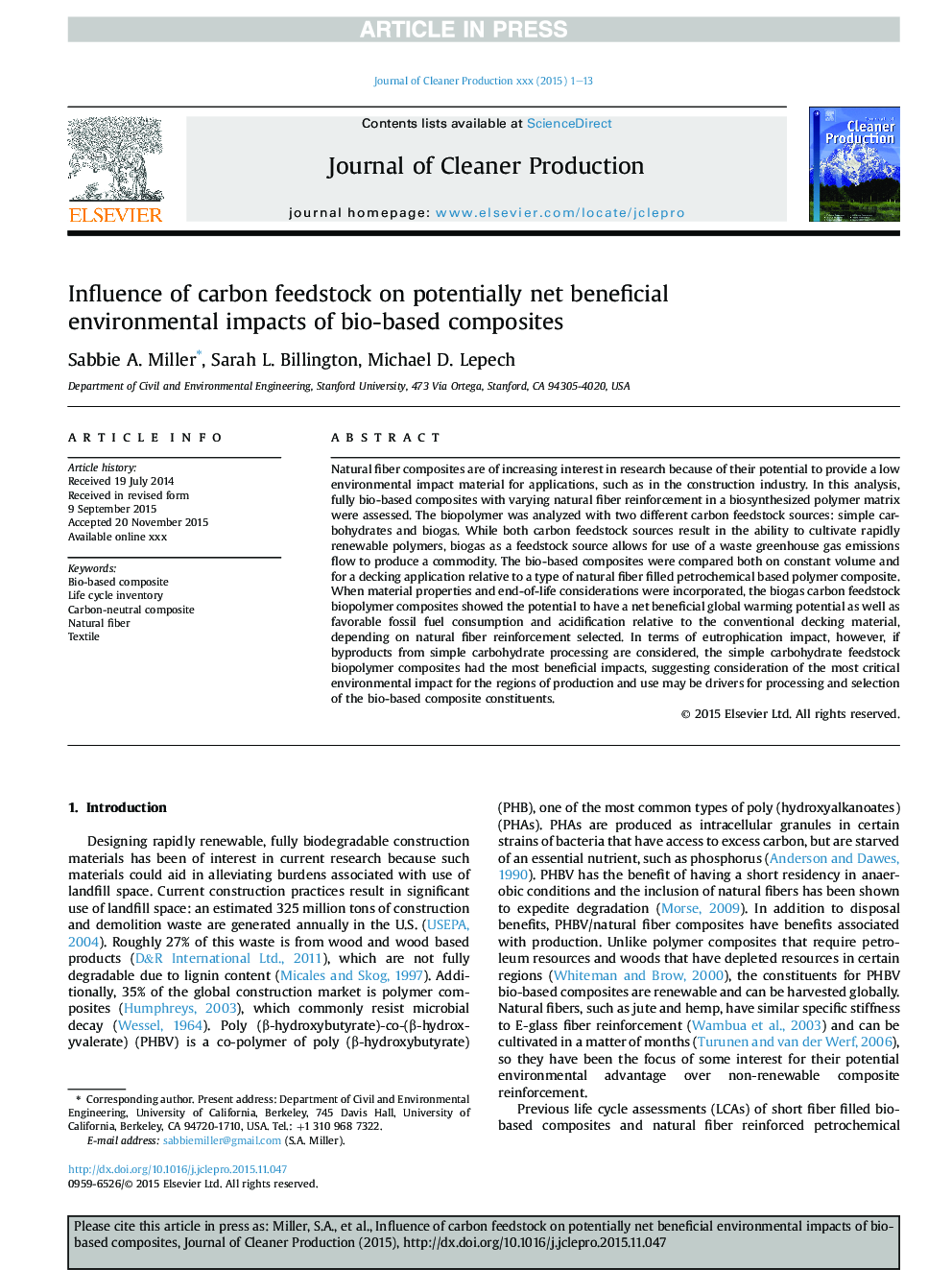| Article ID | Journal | Published Year | Pages | File Type |
|---|---|---|---|---|
| 8101519 | Journal of Cleaner Production | 2016 | 13 Pages |
Abstract
Natural fiber composites are of increasing interest in research because of their potential to provide a low environmental impact material for applications, such as in the construction industry. In this analysis, fully bio-based composites with varying natural fiber reinforcement in a biosynthesized polymer matrix were assessed. The biopolymer was analyzed with two different carbon feedstock sources: simple carbohydrates and biogas. While both carbon feedstock sources result in the ability to cultivate rapidly renewable polymers, biogas as a feedstock source allows for use of a waste greenhouse gas emissions flow to produce a commodity. The bio-based composites were compared both on constant volume and for a decking application relative to a type of natural fiber filled petrochemical based polymer composite. When material properties and end-of-life considerations were incorporated, the biogas carbon feedstock biopolymer composites showed the potential to have a net beneficial global warming potential as well as favorable fossil fuel consumption and acidification relative to the conventional decking material, depending on natural fiber reinforcement selected. In terms of eutrophication impact, however, if byproducts from simple carbohydrate processing are considered, the simple carbohydrate feedstock biopolymer composites had the most beneficial impacts, suggesting consideration of the most critical environmental impact for the regions of production and use may be drivers for processing and selection of the bio-based composite constituents.
Related Topics
Physical Sciences and Engineering
Energy
Renewable Energy, Sustainability and the Environment
Authors
Sabbie A. Miller, Sarah L. Billington, Michael D. Lepech,
